Pharma Industry News Update: 22 Sept 2017
Is Pharma “Gamification” Up to Snuff?
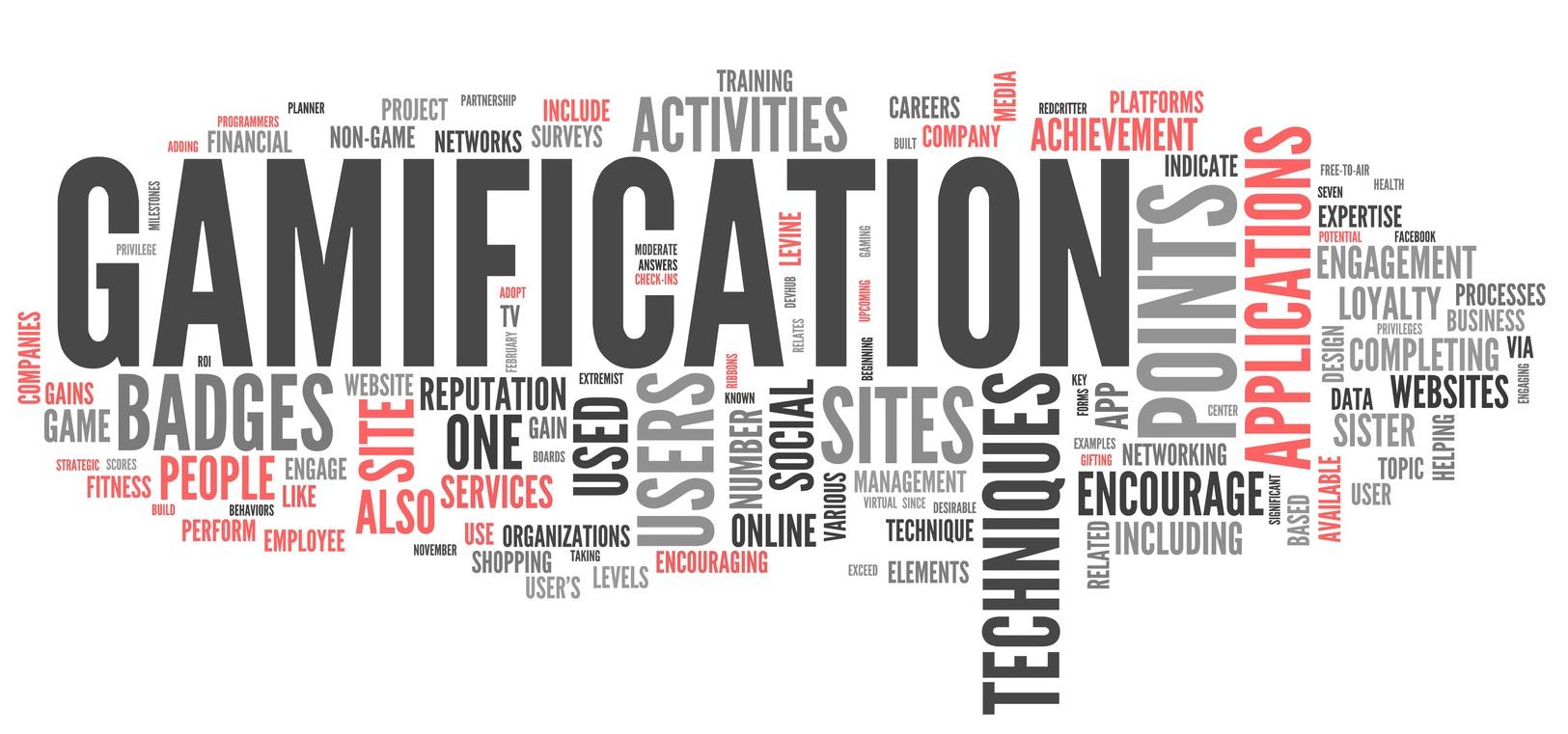
The Pros and Cons
[From www.wearecouch.com] Gamification can be found everywhere – from boardrooms to classrooms, and even on social media. The practice has gained widespread recognition over the last few years through its incorporation into marketing, healthcare, business, politics, and technology design. Subsequently, pharma is embracing the recent trend in healthcare gamification, and utilising this technology to engage both healthcare providers (HCPs) and payers (including patients).
Research and case studies provide evidence that healthcare gamification improves both patient compliance and health outcomes. Using gamification as part of a marketing strategy can help companies deliver their message to a wider audience and boost marketing efforts in several ways.
- Gamification can promote therapies.
- Gamification can increase engagement between pharma, HCPs, and patients.
- Gamification can facilitate physician education.
PharmaGuy’s Insight
The author claims that “gamification” improves patient compliance and health outcomes and that it can help pharma marketers deliver their message. Unfortunately, little evidence of this is provided. Read, for example:
- Is Pharma Gamification Dead in the Water?
- Gamification at Peak of Inflated Expectations & Near Trough of Disillusionment
Comments from LinkedIn Followers
Andy Yeoman, Founder and Co-director of Focus Games Ltd, said:
“I agree John. Several of the examples cited here are games and not ‘gamification’. Getting ‘hard’ quantitative evidence for efficacy of games isn’t easy or cheap so there isn’t much of it. But the starting point should be that the game exists, it has been tested with ‘real’ people and it is being used by real people who have provided some feedback. That’s not so difficult. We do it with all our games.”

SAVE $100 WITH YOUR ONLINE VOUCHER CODE: PMN100BNA
AGENDAREGISTERCONTACTUS
Asthe biosimilar industry continues to flourish, paving opportunities forcommercial progression, SMi Group presents the 4th annual BiosimilarsNorth America conference – an industry-leading event exploring noveland innovative strategies to advance development and to ensurecommercialization and optimal market access.
Join us in a quest to answer key questionsincluding:
- Howdo you builda biologics empire?
- Howdoes the BPCIAand recentruling of the Amgen v Sandozcaseimpact next-generation bioimilar development?
- What’sthe best strategy to penetratethe US biosimilars market?
- Howdo you combatlegal, regulatory, and commercial obstacles to biosimilar development and launch?
- Whatare the implications of the long- awaited biosimilarinterchangeability guidance?
- Whatare the latestand best technologies available?
- Whathave we learned from the globalbiosimilars market?
The event will gather high-level experts shaping up the biosimilars landscape in a booming market including: AdelloBiologics, Cassara Biotech, Dyadic International Inc, Fujifilm DiosynthBiotechnologies, Harvest Moon Pharmaceuticals USA, Medimmune Inc,Momenta Pharmaceuticals, Norwegian Medicines Agency,Oncobiologics, Pfenex Inc, PlantFormCorp, Sandoz, Zuckerman Spaeder LLP and more!!!
Click hereto view the full agenda and register today with your exclusive vouchercode to save $100 off the conference price! We hope to see you in New Jersey this November!
The Silliness of Direct-to-Consumer Drug Advertising
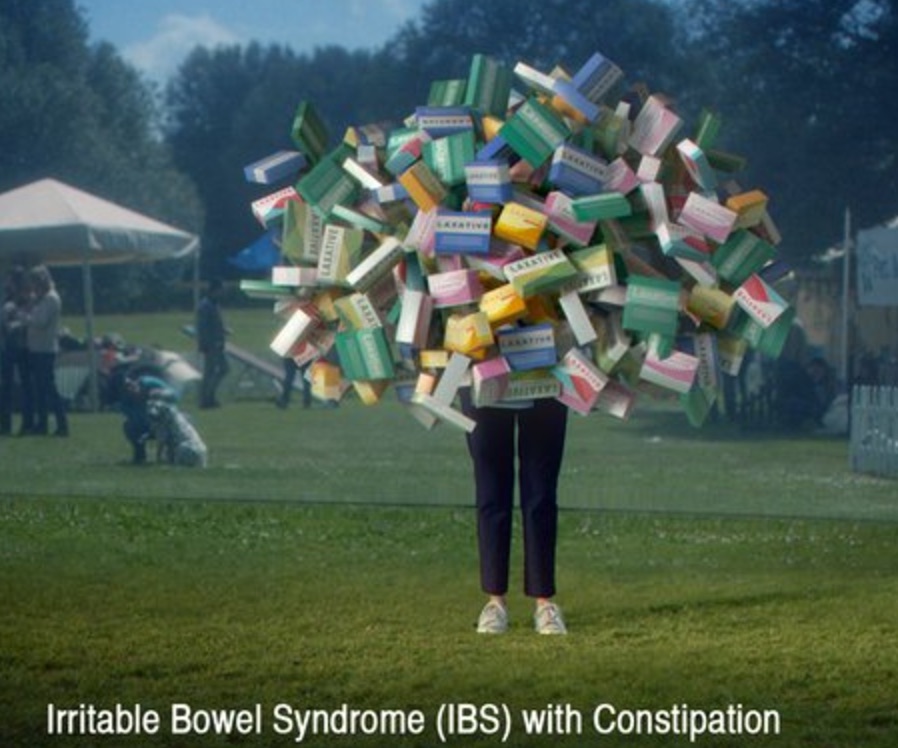
E.g., Allergan’s and Ironwood’s New Linzess Campaign
[From www.fiercepharma.com] Allergan and Ironwood have introduced a new campaign for Linzess that points out the difficulty of managing too many OTC constipation treatments such as laxatives, fiber and probiotics. Computer-generated images of bottles and boxes of OTC treatments literally pile on top of people in the TV ads.
The new “Wearing on You” campaign acknowledges the many OTC treatments, diet changes and other remedies people try when fighting stomach pain and constipation. If those aren’t working, the ads suggest, the condition may be chronic and require a prescription treatment.
How silly can pharma marketers get? Is there no limit? Is it all for the judges at award ceremonies?
Further Reading:
- “Irritabelle,” The Viberzi Irritable Sidekick
- Is Better Ad Creative on the #Pharma Horizon? Geez! I Hope So!
- PharmaGuy’s Gallery of Drug Mascots
Gilead Wins 2-Year Battle & Continues to Hide Hep C Drug Clinical Trial Data
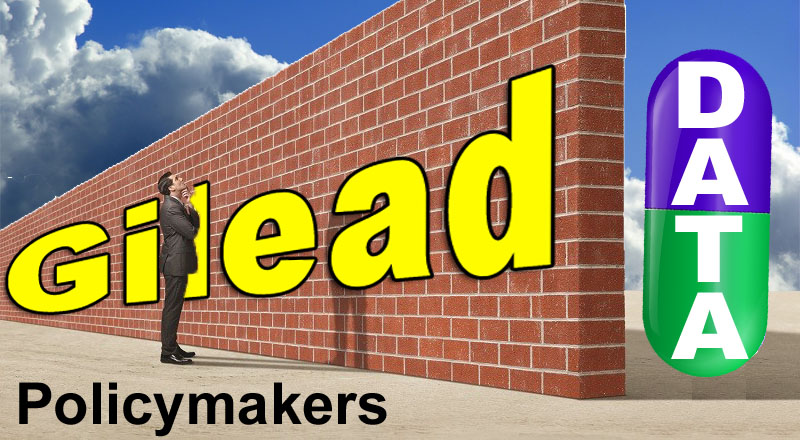
What’s It Hiding?
[From www.statnews.com] After a two-year battle, a pair of public health advocacy groups obtained sought-after clinical trial data from regulators for two hepatitis C treatments sold by Gilead Sciences. But they failed to gain access to the most coveted information that would allow researchers to independently verify test results which were originally generated by the company.
The Yale Global Health Justice Partnership and Treatment Action Group sought patient-level data in order to better understand the safety and effectiveness of the two medicines. But they encountered a familiar argument from the company – as well as the Food and Drug Administration – that revealing such raw data may compromise trade secrets and patient confidentiality.
Further Reading:


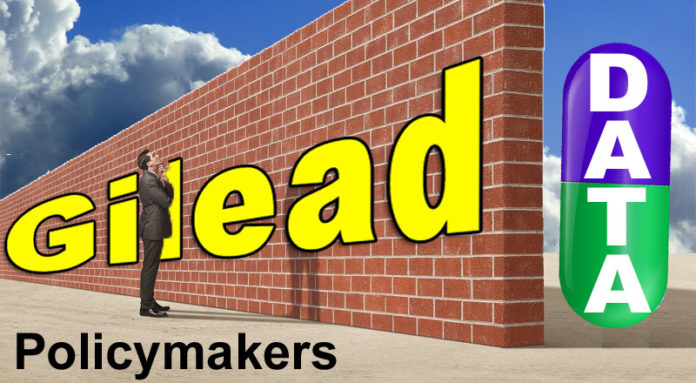




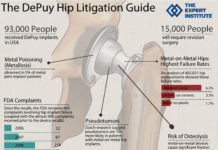
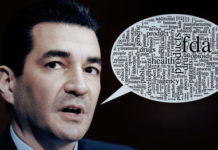
![6 Digital Tools at the Center of Healthcare Digitalization [INFOGRAPHIC]](http://ec2-54-175-84-28.compute-1.amazonaws.com/pharma-mkting.com/wp-content/uploads/2021/04/6DigitalTools_600px-100x70.jpg)




